July Woman Alive book club with Claire Musters.
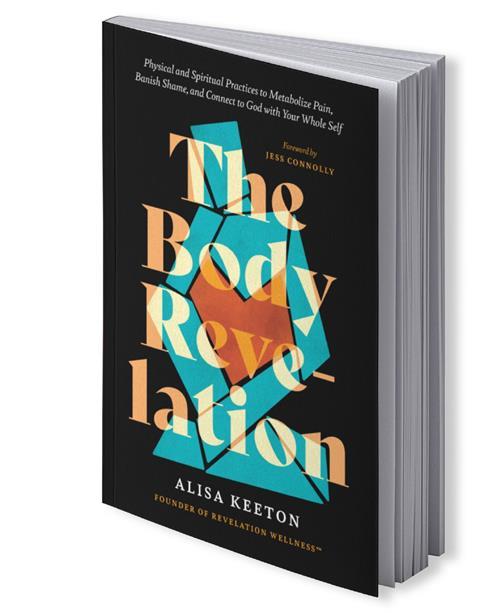
The Body Revelation Alisa Keeton - Tyndale Refresh (978-1496462602)
So many women have poor body image and/or spend their lives trying all sorts of diets and fitness regimes in an effort to feel better about themselves. A US-based fitness professional, author and podcaster, Alisa asserts in The Body Revelation that there is a better way and that we shouldn’t view our bodies as problems to be fixed.
Structured like a training session, the book has six stages that are organised within the warm-up, the workout and the cooldown, with a ‘metabolise’ section for the reader to interact with at the end of each chapter. Also included are links to recordings on Alisa’s website where she provides meditations and audio to accompany readers as they move for 20 minutes, as well as an ‘adverse childhood experiences’ questionnaire, to help readers process past pain, and a food journal template.
Can you explain how you got interested in fitness initially?
I went with my friend to her mom’s aerobics class at 14. Like most 14-year olds, I was making that transition of child to young adult, asking the bigger questions of life like: “Am I pretty enough? Do I fit in? Do I have a group of others to belong to?” I was asking these questions while I was beginning to see the dysfunction of my parents’ marriage and the frustration that came with my dad’s ongoing infidelity and my mom’s codependency. I didn’t know it then, but I was carrying around a lot of anger and sadness in my body. As I lay on the floor in the cooldown phase, my eyes filled with warm tears and a warm sensation rolled over my body. Then the thought popped into my head: “Everything is going to be alright.” From that moment on, I was hooked. I saved my allowance and babysitting money each week to attend weekly aerobic classes with a room of 80s spandex-wearing moms.
How did you first encounter God?
Looking back, it was in that class when I was 14. But since I didn’t know that was God back then, it wasn’t until I was an adult, carrying my childhood pain into my marriage, that I realised I needed God and then another encounter came.
Newly married, we were headed for divorce. It seemed I inherited my mother’s spiritual disease of needing a man to love and heal me. I thought getting married would solve my inner aches and pains, but it only magnified my need. As a successful fitness trainer with everything looking good on the outside, on the inside, my soul was a restless, anxious, angry mess. I felt the need to go to church when a fellow trainer at the gym invited me. I resisted at first, knowing my husband wouldn’t go with me, but eventually, in my misery, I went. The pastor’s sermon that day was on John 4, the woman who had had many husbands and had come to the well to get water. She, like me, was thirsty for love, hoping to find it in men. I was gripped when Jesus told her she would never be satisfied with any other love but his. That was it for me! I knew God saw me, knew me and was choosing me. And I knew everything was about to change.
God developed your love of fitness in a holistic way – can you explain how?
First, let me define metabolism. Our bodies consist of cells, tissues, blood and bones – things we can touch and see. Those things contain something we can’t see: energy. Our bodies are made of energy and are sustained by energy. When we run low on energy, a felt experience in the body occurs: brain fog, stomach growls and even irritability sets in. Our bodies and brain receive a cue that it’s time to eat and ingest energy. Metabolism is our body’s ability to consume energy in various forms, like food, water, air and sunshine; digest it and create a chemical exchange so we can get what we need physically and continue to output life-sustaining energy. Everything created and breathing is in a continual chemical exchange loop of taking in, breaking down, processing and outputting energy.
I discovered the book Childhood Disrupted by Donna Jackson Nakazawa (Atria Books), and learned how childhood adversity, due to chronic stress, can disrupt the operation and architecture of our brain, and create a higher likelihood of suffering with sickness and chronic disease in adulthood. Once I understood that our childhood pain doesn’t just affect us emotionally into adulthood, but biologically too, I became empathetic towards myself and others.
I thought of hundreds of clients who shared their emotional aches and pains, like a cheating husband or a sudden job loss, while resting between sets at the squat rack. I wondered if their ongoing stress was at the root of their health challenges, not their lack of self-control. Just as they couldn’t improve their physical health no matter how hard they tried, I couldn’t improve my emotional health in my relationships. The problem wasn’t the lack of not knowing what’s right to do but in their inability to do it because of the pain that disrupts a healthy body-brain communication. I also knew that God made our bodies to heal.
I had a sense that if we partnered with God with our bodies he could take the pain, process it and put it to good use. So, I set out on learning various practices we can do with our bodies to heal from adversity. And, unlike what the health and fitness world had taught me since the 1980s, it doesn’t involve working harder, or conjuring up more self-discipline.
Why do you think so many of us find rest difficult, and what can we do about it?
Our economy has shifted from being built on forming industries to an economy of acquiring and distributing information. The digital age provides us with many blessings, but one thing it doesn’t willingly make provision for is rest. With supercomputers in the palm of our hands, we have ongoing access to more information in one day than someone who lived in the late 1800s did in their entire life. We were not designed for this much information and constant connection. But our brain craves the quick hit of dopamine it gets when being informed or ‘liked’ in a social media connection.
The ongoing input and constant contact we crave engages our stress response throughout the day, making it feel challenging to rest and be still when, according to Psalm 46:10, it’s in a moment of being still and resting that we know God. Just like when we are sick with the flu, rest allows for healing.
One simple thing you can do to train rest into your day is to make a point of leaving your phone, sit outside and take a few deep breaths while observing the environment around you. Look at the sky. Notice the clouds. Feel the breeze. Look for little pockets of time in your day to make room for rest. What you look for, you will find! Look to know God and not just more information about God. Look for rest.
Alisa Keeton on: The books that have changed my life
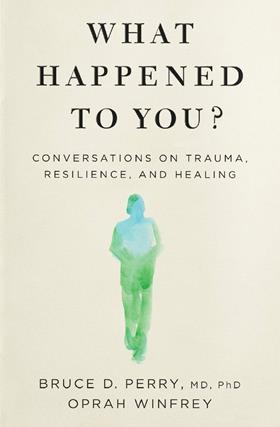
What Happened To You?by Bruce D Perry and Oprah Winfrey
This book helps us to understand why it’s not the wrong that people do that is the catalyst of unhealth, but what happened to them (which causes them to act in unhealthy ways). This book will give the reader empathy for the hurting and understanding on how to help them.
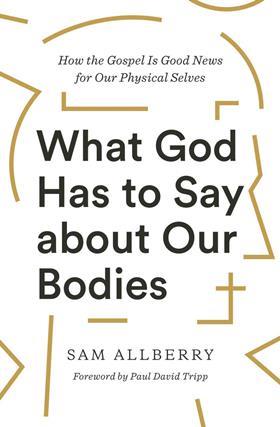
What God Has to Say About Our Bodies by Sam Allberry
This book does a great job at juxtaposing our physicality and Christian spirituality, and how our bodies reveal the glory of God.
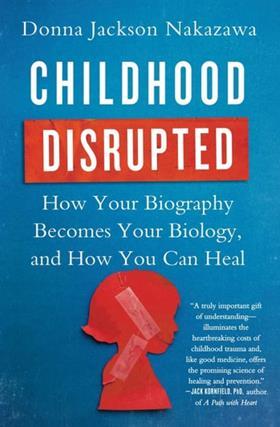
Childhood Disrupted by Donna Jackson Nakazawa
This book explains how adversity in our lives can affect us negatively emotionally and on a soul level, but also biologically, and what we can do to heal. It was a great impetus for why I felt like I needed to write The Body Revelation.
Publisher Recommendation
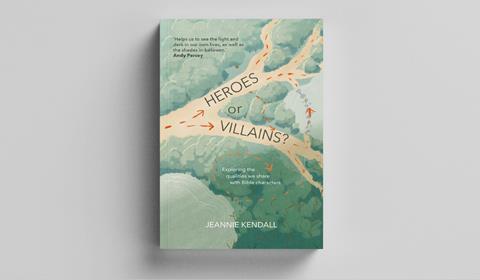
Combining imaginative retellings of Bible stories with psychological insights, Heroes or Villains? looks at the complexity of human nature and reveals how God graciously loves us as we are.
Who are the heroes of the Christian faith? And who are the villains?
Was Jezebel just the thoroughly evil character we believe her to be? Or was there another side to her story? Did David always behave as the great hero of the faith? What about his spectacular mistakes?
The reality is that we all have the potential for great good and disastrous moral failure. Through imaginatively retelling the stories of Bible characters, Jeannie Kendall shares profound insights on human nature that can help us make better choices in our lives.
By understanding our own complexities, we can fully experience the lavish way in which God loves us as we are, mixed and muddled, villainous and heroic.
At Authentic, we love the way Jeannie retells Bible stories from a character’s viewpoint, drawing out gems of wisdom that we hadn’t seen or thought about before. Jeannie’s pastoral heart shines through everything she writes, and we love working with her to help people become more Christ-like!
Heroes or Villains?: Exploring the qualities we share with Bible characters by Jeannie Kendall was recommended by Rachael Franklin, product and marketing manager at Authentic Media.
Love reading? Join the WA Bookclub on Facebook.
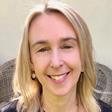











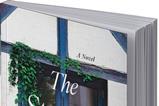

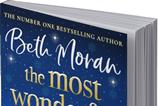


















No comments yet